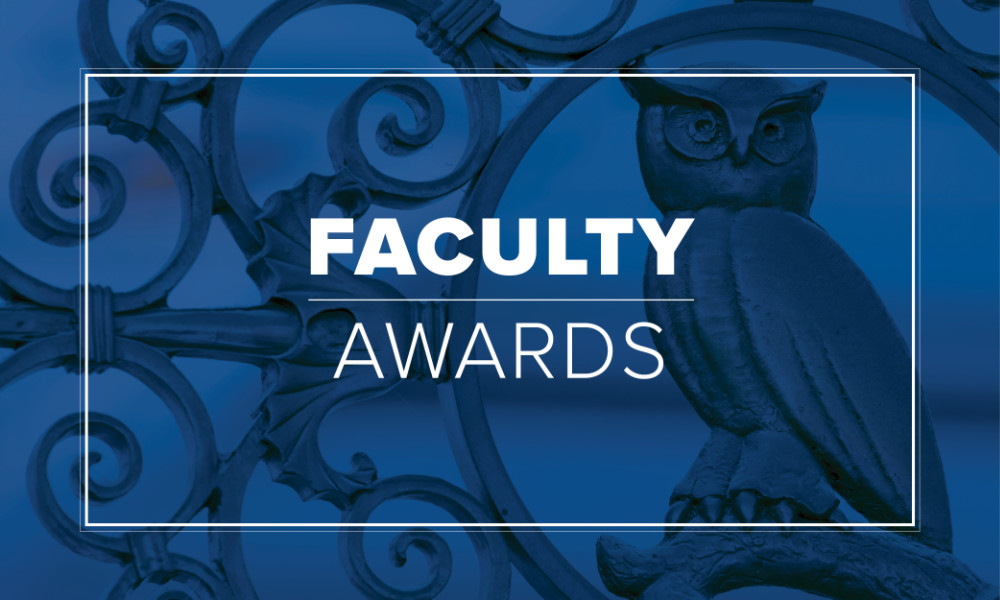David Holloway was a promising assistant professor in Japanese studies and director of the East Asian studies undergraduate program.
David Holloway, an assistant professor of Japanese, is being remembered by colleagues in the Department of Modern Languages and Cultures at the University of Rochester as a prolific and creative scholar. He died on June 25.
Holloway, a promising tenure-track professor and member of the University community, recently completed a manuscript for The End of Transgression in Japanese Women’s Literature: Gender, Body, Nation, accepted under contract with Routledge Press for publication in 2022.
With more scholarly work in the pipeline, he had already written eleven articles and chapters since joining the department in 2015 as a visiting professor. “Unprecedented for an assistant professor (in the humanities),” says John Givens, professor of Russian and chair of the department.
In memory of David Holloway
University of Rochester flags will be lowered on Thursday, July 29, for Holloway.
Read tributes, condolences, and memories from the University’s Department of Modern Languages and Cultures and from the East Asian Languages and Cultures community at Washington University in St. Louis.
Givens remembers the unique energy Holloway brought to the department. “He was deferential and soft-spoken. A quiet, gentle soul, who was interested in the most diverse subjects, and had the most diverse interests,” he says.
A native of Colorado, Holloway was a first-generation college student. He majored in Japanese studies at Washington University in St. Louis. After earning a master’s in Japanese language and literature from the University of Colorado at Boulder in 2007, he returned to Washington University for his PhD. He wrote his doctoral dissertation on contemporary Japanese women writers Kanehara Hitomi, Ami Sakurai, and Hasegawa Junko, and how they placed their characters in the visual economy of sexual politics.
Two years into the visiting position at Rochester, “he established himself wonderfully,” says Joanne Bernardi, a professor of Japanese and of film and media studies, who recruited him. He began coteaching courses in the University’s Susan B. Anthony Institute for Gender, Sexuality and Women’s Studies.
A popular professor, he had a wide range of subjects he could teach, from traditional Japanese and popular culture to the most current fiction.
His academic interests included youth cultures and subcultures, transgression, and the precarity of Japan’s “lost decade” (the years from 1991 to 2001) He also taught a semester at the Five Points Correctional Facility in Romulus, New York, through the Rochester Education Justice Initiative. In 2019, he was named director of East Asian studies undergraduate program, offered through the Multidisciplinary Studies Center.
A ‘trailblazing’ book in the works
Bernardi and her longtime friend Rebecca Copeland, a professor of Japanese language and literature at Washington University and Holloway’s dissertation advisor, plan to shepherd Holloway’s book to completion. The manuscript for The End of Transgression focuses on several Japanese women writers who use transgression to break the norms in their literature, “not as a catalyst for protest, but rather as a way to restore a sense of normalcy,” says Bernardi.
Bernardi says Holloway’s work in the book goes “against the grain, and that’s what is so enlightening about it. He looks at these works in a way that others have not. So it will be a significant addition to the field.”
“The subject matter has not received extensive scholarly treatment. As a result, this will be a trailblazing book,” says Givens. “It will be very fitting that he will have a legacy as a scholar even though he couldn’t get the kind of approbation that comes when you’re tenured and recognized as a permanent faculty member in the profession.”
A scholar with an uncommonly creative side
Holloway was described as a keen observer of human nature. Colleagues and friends remarked on his sense of humor and smile. “He was really funny in a dry kind of way,” says Tanya Bakhmetyeva, an associate professor of gender, sexuality, and women’s studies who cotaught an introduction to gender studies course with Holloway. As a scholar of masculinity, Holloway brought a “fascinating and important perspective” to the course, she says.
His interests in tattoos and body alterations opened the door for his students to discuss self-presentation. “He was very knowledgeable on the history of tattoos and international history because of his Japanese studies. He always had an interesting insight that students were fascinated with,” Bakhmetyeva says.
Holloway was also a creative writer who specialized in a short form of flash fiction. Only four days before his death, one of his short stories—an interpretation of the “old woman in the woods” figure from Japanese folklore—had been published in Yamamba: In Search of the Japanese Mountain Witch (Stone Bridge Press, 2021).
He was an accomplished photographer, and his prize-winning photographs still adorn the walls of the comparative literature department at Washington University.
“He managed to do much with the time he was given,” says Givens. “He was poised for tenure. I was looking forward to a long collegial relationship with him.”




